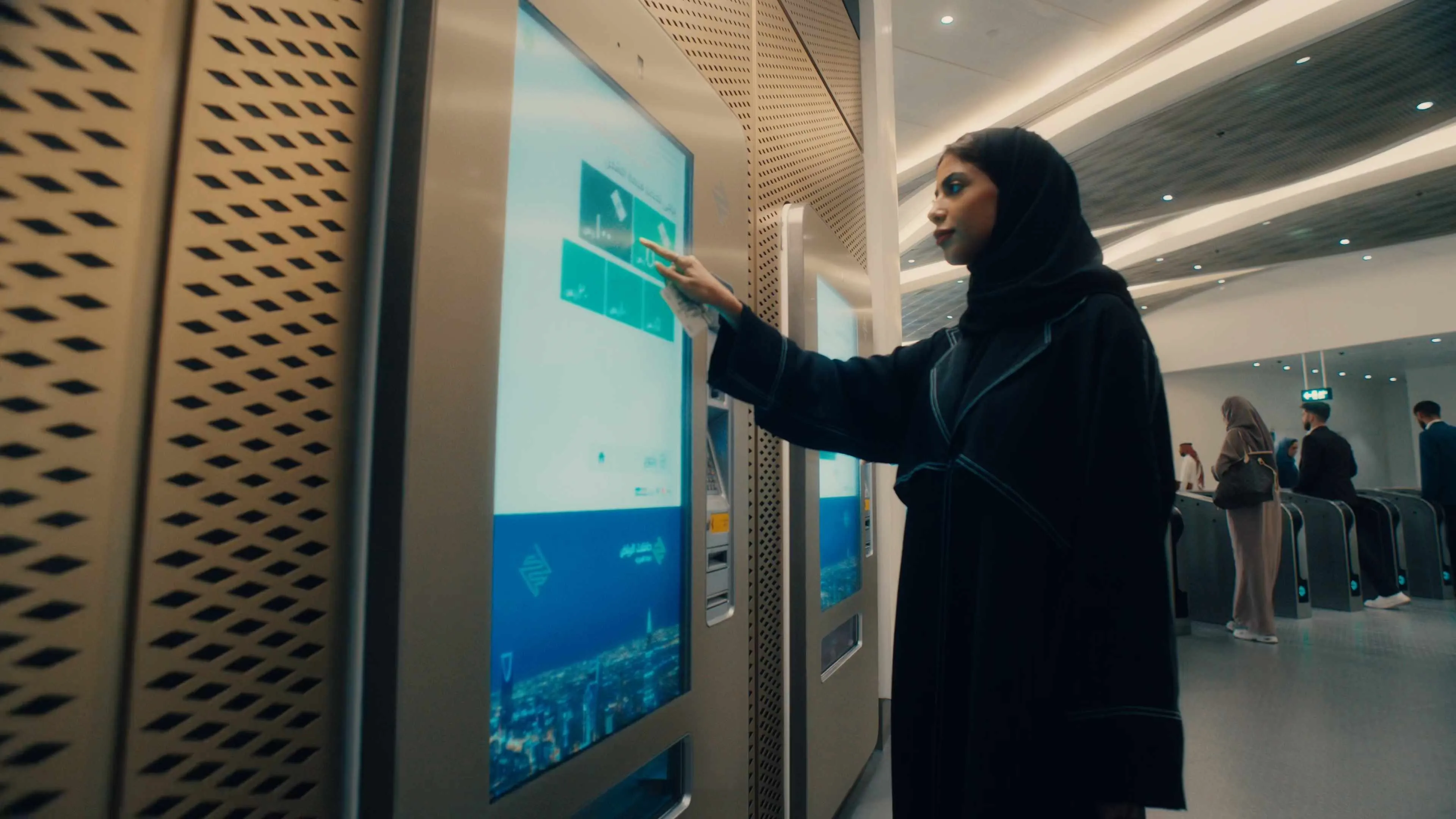
Indra’s ticketing technology is now in operation on the first three, recently-opened lines of the Riyadh Metro system in Saudi Arabia.
In the coming months, it will extend to the other three Riyadh Metro lines in the Saudi capital, with a full network spanning 176km, across 85 stations. Indra’s technology also covers 800 buses, plus bus stops including bus rapid transit lines around the city.
The system is part of a €266 million contract awarded to Indra to implement its automatic ticketing and access control solutions throughout Riyadh’s public transport network.
The new metro equipment is now being incorporated into the central system that serves the bus network to provide passengers with an integrated and intermodal end-to-end journey via a single transport ticket.
The new information and ticket vending machines installed throughout Riyadh Metro were developed specifically for the project. Indra said that it was “designed with an avant-garde aesthetic and usability”, similar to that of a smartphone. The technology is equipped with a touch screen allowing users to interact seamlessly and access information such as maps, timetables and multimedia content.
As for the access control mechanisms, Indra said it reduces the feeling of a barrier, thanks to the use of transparent elements and the fact that they allow tickets to be validated with a travel card, cellphone, bank card or smart watch.
The equipment designed by Indra for the bus rapid transit lines and conventional bus stops is capable of withstanding the climatic conditions of Riyadh; it is resistant to temperatures above 60ºC and is protected against dust and water.
Indra, based in Spain, has contracts in cities such as Spain’s capital Madrid, St. Louis in the US, Lisbon in Portugal and Amsterdam, Netherlands. Earlier this year, Indra’s Mobility business was awarded the management of the ticketing system for light rail, buses and the national rail network in Ireland, as well as the future Dublin Metro.









